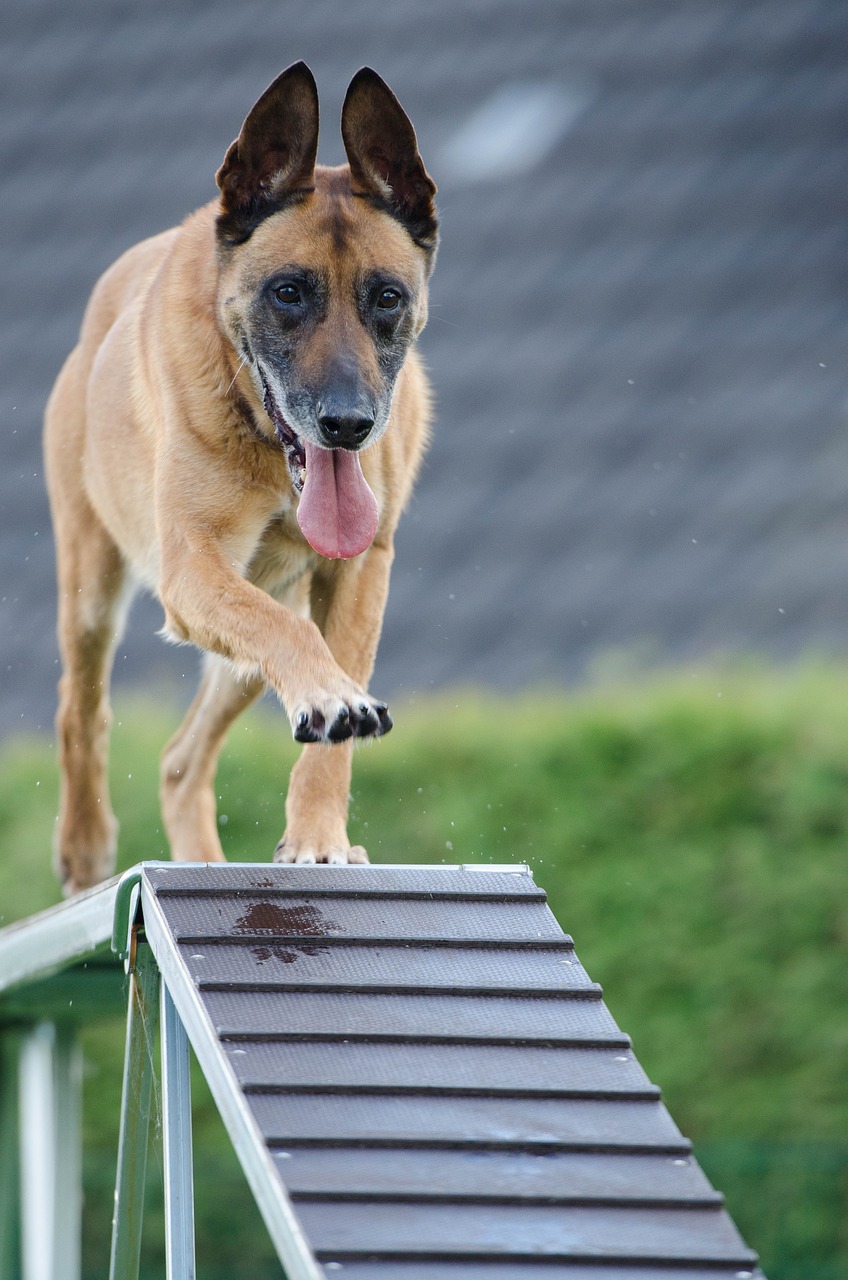If you've recently welcomed a new furry friend into your life, you know just how important it is for them to be comfortable and confident in various social settings. That's where dog socialization comes in. In this beginner's guide to socializing your dog, you'll discover essential training tips that will help your four-legged companion thrive in any environment. From introducing them to new people and animals to exposing them to different sights and sounds, this article will equip you with all the knowledge you need to make your dog a social butterfly. So, grab a treat and get ready to embark on a rewarding journey of canine socialization!
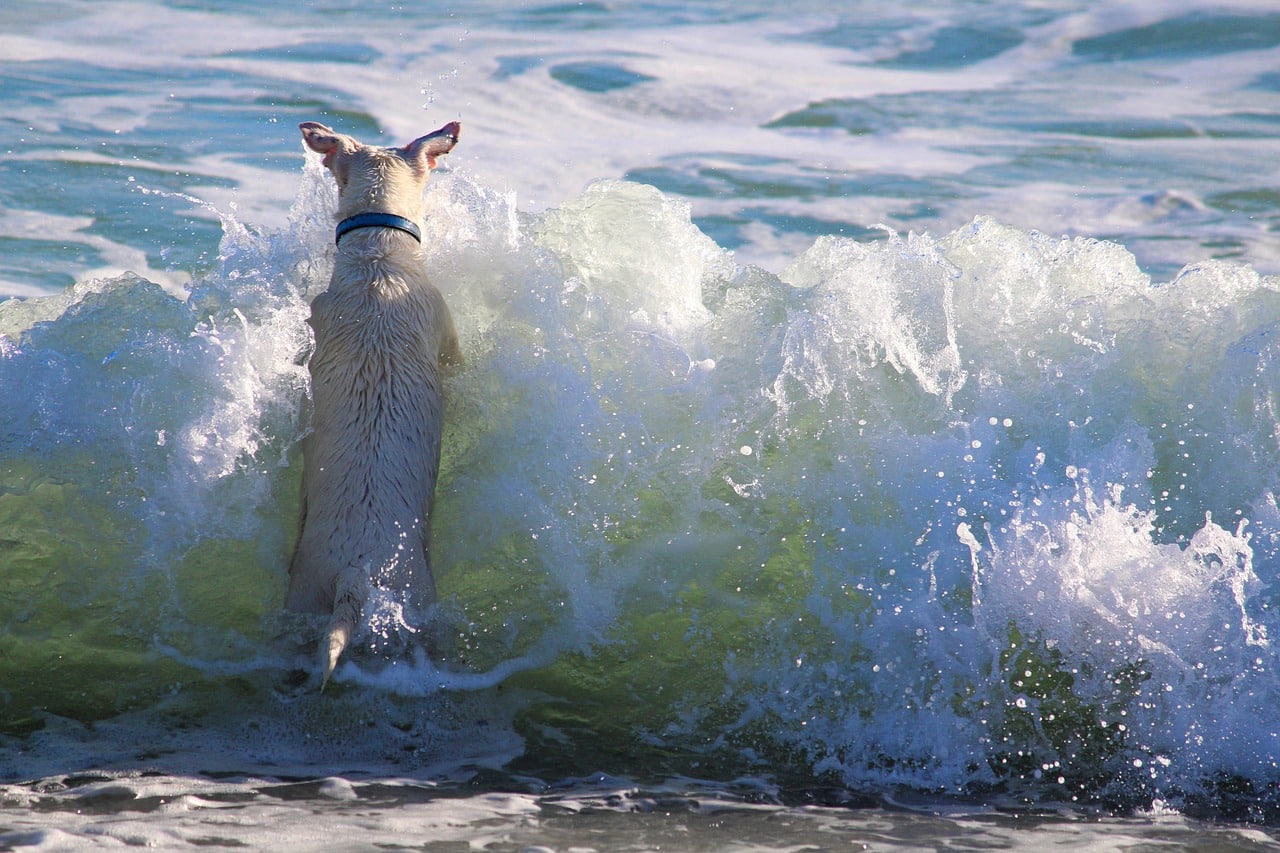
This image is property of pixabay.com.
Why Socializing Your Dog is Important
Socializing your dog is an essential aspect of their overall well-being and development. It not only helps prevent behavioral issues but also builds their confidence and reduces fear. Additionally, it promotes better communication skills, allowing them to interact with other dogs and people in a more positive and respectful manner.
Helps prevent behavioral issues
One of the primary reasons why socializing your dog is crucial is its ability to prevent behavioral issues. Dogs that are not properly socialized may develop problems such as aggression, anxiety, and fear. They may exhibit excessive barking, growling, or even biting when faced with unfamiliar situations or individuals. By exposing your dog to different experiences and providing positive reinforcement, you can help minimize the likelihood of these behavioral issues emerging.
Improves overall well-being
Another benefit of socializing your dog is the improvement in their overall well-being. Dogs are social animals and thrive when they are able to interact and engage with their surroundings. Socialization provides mental stimulation and prevents boredom, leading to a happier and healthier dog. Additionally, it can reduce the risk of separation anxiety, as they become accustomed to being around different people and in various environments.
Builds confidence and reduces fear
Socializing your dog from an early age helps build their confidence and reduce fear. By exposing them to different people, animals, and situations, they learn to navigate the world with ease and become more comfortable in new environments. Dogs who have not been properly socialized may become fearful or anxious when faced with unfamiliar situations, hindering their ability to experience the world confidently.
Promotes better communication skills
Effective communication is essential for dogs to interact with both their own species and humans. Through socialization, dogs learn how to read and respond appropriately to the body language and vocal cues of other dogs and people. They develop a better understanding of proper greetings, play, and boundaries, allowing for positive interactions. By promoting better communication skills, socialization helps prevent misunderstandings and conflicts between dogs and their human counterparts.
When to Start Socializing
Early socialization is key when it comes to introducing your dog to different experiences and individuals. The critical socialization period for puppies is between 3 to 14 weeks, during which they are more open to new experiences and are highly impressionable. Early socialization can set the foundation for a well-adjusted and confident adult dog.
Consider your dog's age and health
While early socialization is crucial, it's important to consider your dog's age and overall health. Puppies should start socializing as early as possible, but older dogs can also benefit from socialization activities. It's essential to assess your dog's health and consult with your veterinarian to ensure they are physically fit for socialization activities. Certain health conditions or vaccinations may impact when and how you can socialize your dog, so it's always best to seek professional advice.
Consult with a professional
To ensure you are providing the best socialization experience for your dog, it's advisable to consult with a professional. A qualified dog trainer or behaviorist can guide you on the appropriate socialization techniques based on your dog's specific needs. They can provide valuable insights and help you create a customized socialization plan that takes into account your dog's personality, breed, and any existing behavioral issues.
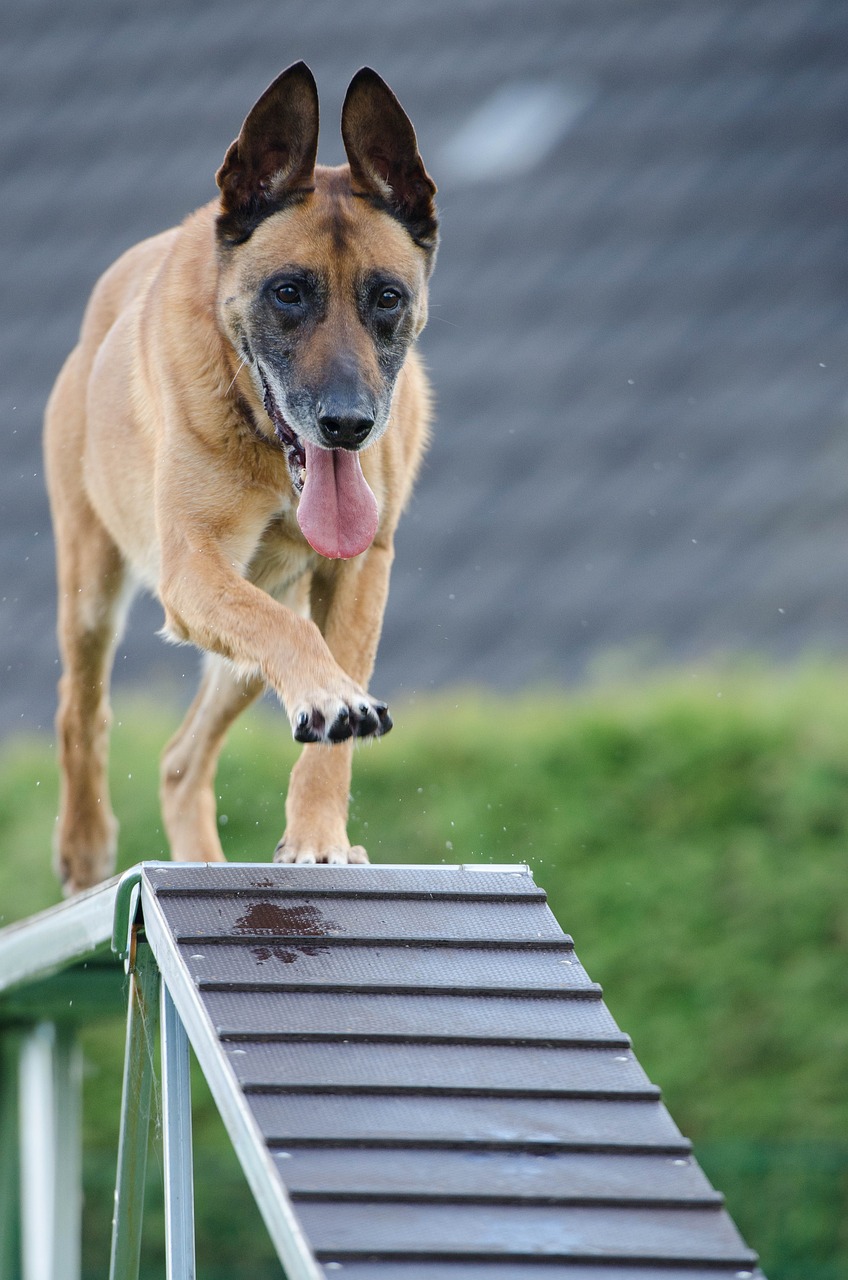
This image is property of pixabay.com.
Socializing with Other Dogs
Socializing your dog with other dogs is crucial for them to develop appropriate social skills and learn how to interact with their own species. Here are some tips for successful interactions:
Start with controlled introductions
When introducing your dog to other dogs, it's crucial to start with controlled introductions. Choose neutral ground, such as a park or training facility, where both dogs can feel comfortable. Keep the initial interactions on a leash and closely monitor their behavior. Gradually allow the dogs to approach each other, rewarding calm and positive interactions.
Use positive reinforcement
Positive reinforcement is a key aspect of successful socialization with other dogs. Reward your dog for appropriate behavior, such as maintaining a relaxed posture, friendly sniffing, or gentle play. This reinforces the desired behavior and encourages positive interactions. Avoid using punishment or negative reinforcement, as it can create fear and anxiety in your dog.
Observe body language
During dog-to-dog interactions, it's important to observe the body language of both dogs. Pay attention to signs of relaxation, such as loose wagging tails, loose body posture, and soft facial expressions. Conversely, watch for signs of tension or aggression, such as stiff bodies, raised hackles, or intense staring. By understanding and interpreting their body language, you can intervene if necessary and prevent potential conflicts.
Address any aggressive behaviors
If your dog displays aggressive behaviors during interactions with other dogs, it's important to address them promptly. Consult with a professional dog trainer or behaviorist who can help you understand the underlying causes and provide guidance on how to modify these behaviors. Addressing any aggression issues early on will prevent them from becoming ingrained patterns of behavior, making socialization more challenging in the future.
Socializing with People
In addition to socializing with other dogs, it's equally important to expose your dog to a variety of people to ensure they develop positive and appropriate interactions. Follow these tips for successful socialization with people:
Introduce to different ages and genders
To ensure your dog becomes comfortable with a wide range of individuals, introduce them to people of different ages, genders, and ethnicities. Encourage positive interactions with strangers and friends alike, gradually increasing the complexity of the scenarios. This will help your dog become more adaptable and confident when meeting new people in different contexts.
Teach appropriate greeting behaviors
Teaching your dog appropriate greeting behaviors is crucial to ensure they approach people in a polite and friendly manner. Train them to sit or stay when meeting new individuals, rather than jumping or pawing. Use positive reinforcement to reward calm behavior, and reinforce the desired greeting behaviors consistently. This will make social interactions more enjoyable for both your dog and the people they encounter.
Reward positive interactions
Whenever your dog interacts positively with people, offer immediate rewards and praise. This positive reinforcement strengthens the association between socializing and positive experiences, encouraging your dog to seek out more interactions in the future. Use treats, toys, or verbal praise to reward your dog's good behavior and make the socialization process enjoyable for them.
Address any fear or aggression
If your dog displays fear or aggression towards certain individuals, it's important to address these behaviors promptly. Fear or aggression can stem from past negative experiences or lack of socialization. Seek guidance from a professional trainer or behaviorist who can help you implement desensitization and counter-conditioning techniques. They will work with you to modify these behaviors and help your dog associate positive experiences with meeting new people.
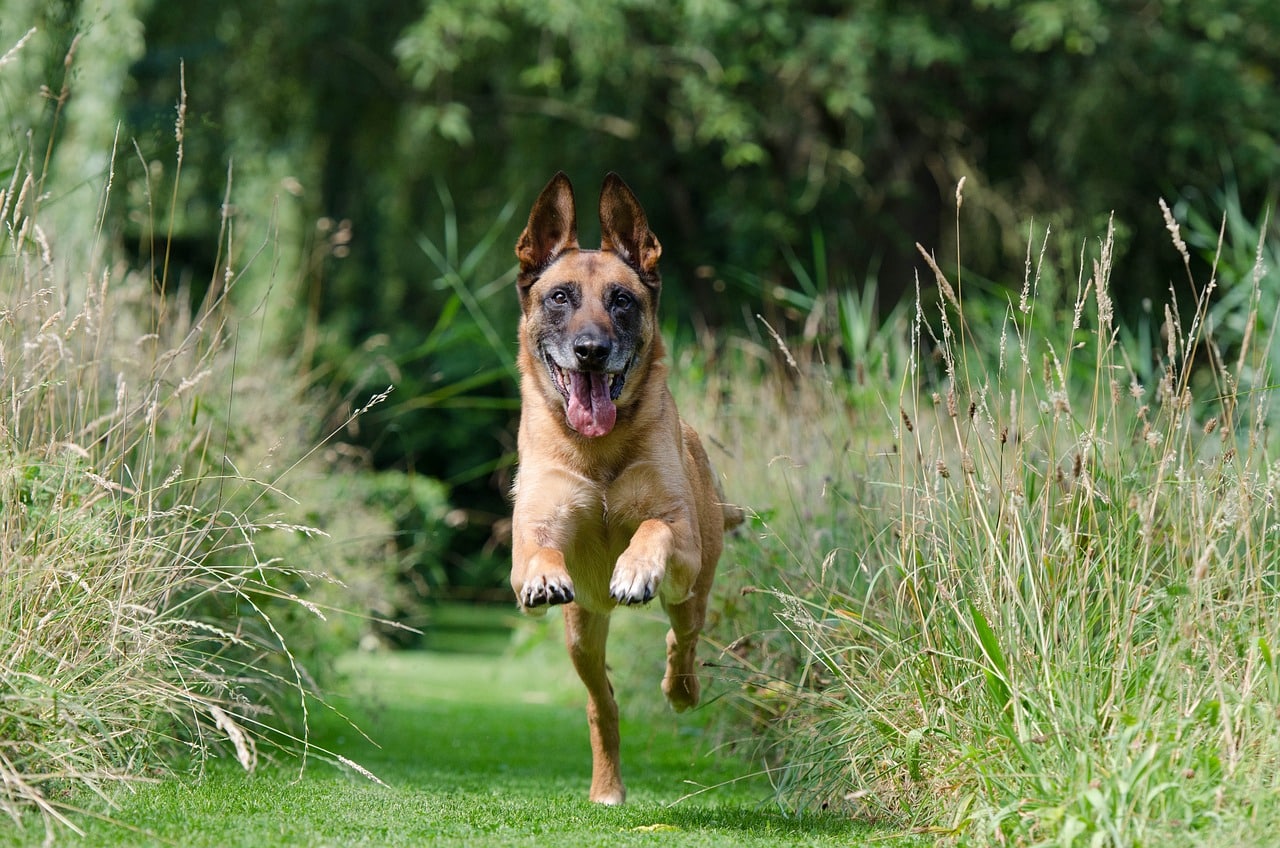
This image is property of pixabay.com.
Exposing to Different Environments
In addition to socializing with other dogs and people, it's important to expose your dog to different environments to ensure they feel comfortable and confident in various settings. Here's how you can achieve this:
Gradually introduce new environments
When exposing your dog to new environments, it's crucial to start with gradual introductions. Begin with quiet and less stimulating places, such as your backyard or a calm park. Slowly increase the complexity of the environments, gradually exposing your dog to busier areas with more sights and sounds. This approach allows your dog to acclimate gradually, reducing the risk of overwhelm or fear.
Allow exploration at a comfortable pace
Once in a new environment, allow your dog to explore at their own pace. Avoid forcing them into situations that may cause anxiety or stress. Let them approach new objects, people, or animals at their own comfort level. Be patient and supportive, providing reassurance and rewards for brave behavior. This will help your dog associate new environments with positive experiences.
Accustom to various sounds and sights
To ensure your dog is comfortable in different environments, expose them to various sounds and sights. Gradually introduce them to car noises, children playing, city sounds, and other common auditory stimuli in a controlled manner. Similarly, let your dog become familiar with different sights, such as people wearing hats, bicycles, or other animals. This exposure will help them become more adaptable and less fearful in new environments.
Socializing at Puppy Classes
Puppy classes are an excellent way to provide structured socialization opportunities for your dog. They offer numerous benefits and opportunities for growth and learning. Here's what you need to know about socializing your dog at puppy classes:
Benefits of puppy classes
Puppy classes provide a controlled and safe environment for your dog to interact with other puppies and learn valuable social skills. They offer supervised play sessions, allowing puppies to engage in appropriate play and learn bite inhibition. Additionally, puppy classes provide an opportunity for early training and help owners understand how to effectively communicate and bond with their dogs.
Choosing the right class
When selecting a puppy class, it's important to choose one that focuses on positive reinforcement training methods and provides a safe and clean environment. Look for classes that limit the number of puppies per session to ensure proper supervision and individual attention. Additionally, consider the qualifications and experience of the instructors to ensure they are knowledgeable in dog behavior and training techniques.
Interacting with other puppies
During puppy classes, your dog will have the opportunity to interact with other puppies. This is a valuable learning experience where they can develop appropriate play skills, practice sharing, and establish social hierarchies. Observe their interactions and ensure play remains balanced and friendly. If any concerning behaviors arise, consult with the instructor for guidance on how to address them.
Working on basic commands
In addition to socialization, puppy classes also focus on basic obedience training. This is an ideal time to work on commands such as sit, stay, come, and heel. The structured training sessions during puppy classes help establish a foundation for future training and ensure your dog learns to respond to commands even in the presence of distractions.
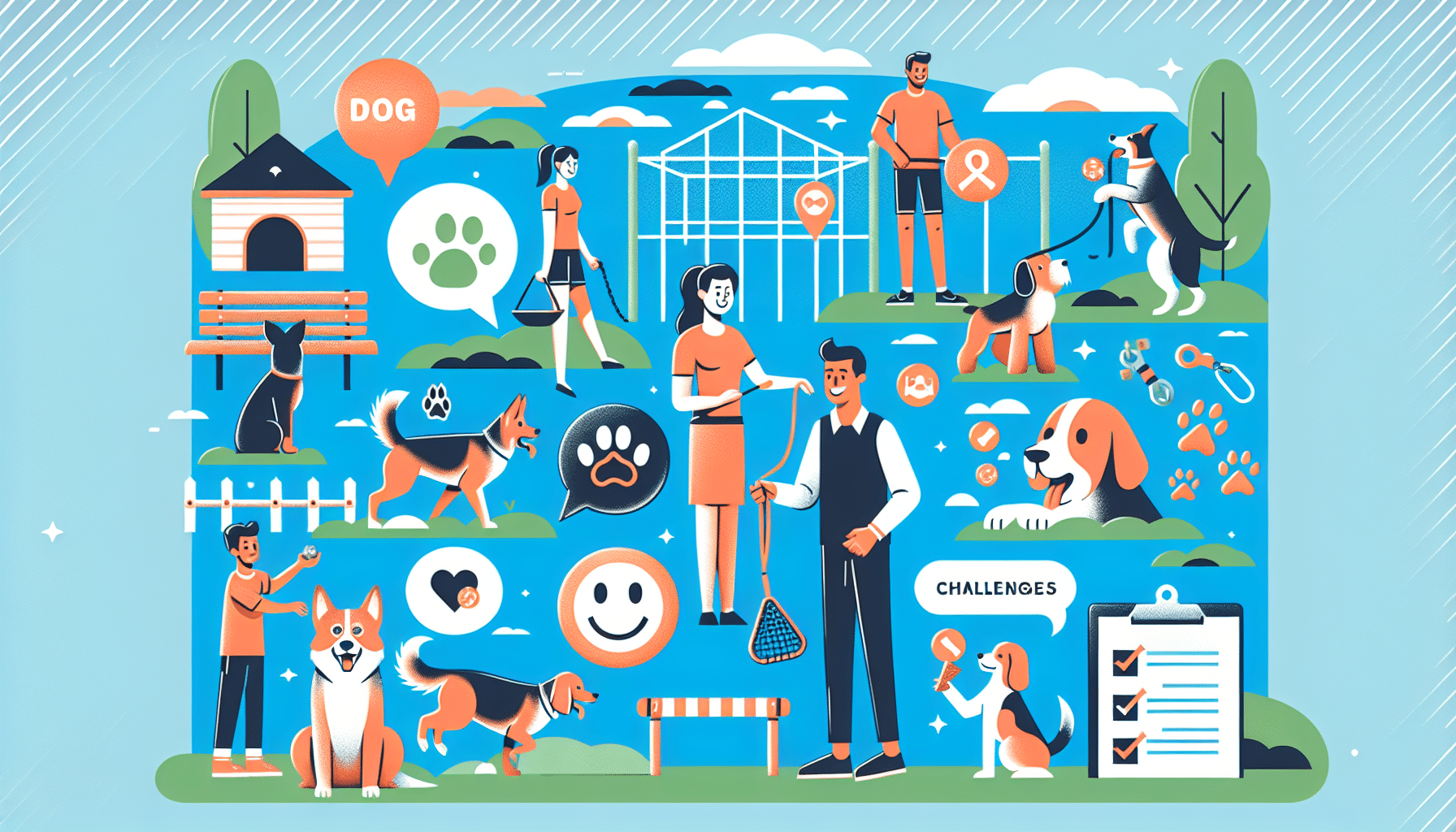
Socializing with Children
If you have children in your household or your dog comes into contact with children regularly, it's crucial to socialize them appropriately. Here's how you can ensure positive interactions between your dog and children:
Supervise all interactions
When your dog interacts with children, it's vital to supervise all interactions closely. Even the gentlest dogs can become overwhelmed or fearful around children, especially if they are not accustomed to their presence. Be present to ensure the interactions are positive and safe for both the child and dog.
Teach children proper handling
Children need to be taught how to handle dogs appropriately. Teach them to approach dogs calmly, without sudden movements or loud noises. Show them how to offer the back of their hand for the dog to sniff before attempting to pet them gently. Educate children about respecting a dog's boundaries and not disturbing them while they eat or sleep.
Provide positive experiences
Positive experiences are crucial to developing a good relationship between your dog and children. Encourage gentle and calm interactions, rewarding both the dog and child for appropriate behavior. Allow children to participate in feeding, grooming, or playing activities with supervision, ensuring the interactions are positive and reinforcing trust and respect.
Address any fear or aggression
If your dog shows signs of fear or aggression towards children, it's essential to address these behaviors promptly. Seek guidance from a professional trainer or behaviorist who can help you modify these behaviors and create positive associations between your dog and children. Never force interactions between your dog and children if there is apprehension or aggression present.
Dealing with Fear and Aggression
Fear and aggression are common behavioral issues that can arise when dogs are not properly socialized. Here's how to handle and address these issues:
Recognize signs of fear and aggression
It's important to be able to recognize the signs of fear and aggression in your dog. Fear may be exhibited through cowering, hiding, excessive panting, or avoiding eye contact. Aggression can manifest as growling, barking, lunging, or biting. Understanding these signs will allow you to address the underlying issues and take appropriate action.
Consult with a professional trainer or behaviorist
If your dog displays fear or aggression, it's crucial to seek help from a professional trainer or behaviorist. They are experienced in identifying the underlying causes of these behaviors and can provide guidance on how to modify them effectively. A professional can implement desensitization and counter-conditioning techniques to help your dog overcome their fears and reduce aggression.
Use desensitization and counter-conditioning techniques
Desensitization and counter-conditioning techniques are effective methods for addressing fear and aggression in dogs. These techniques involve gradually exposing your dog to the fearful or triggering stimuli in a controlled manner while associating positive rewards. This helps your dog learn new positive associations and reduces their fear and aggression over time. A professional trainer or behaviorist can guide you through this process.
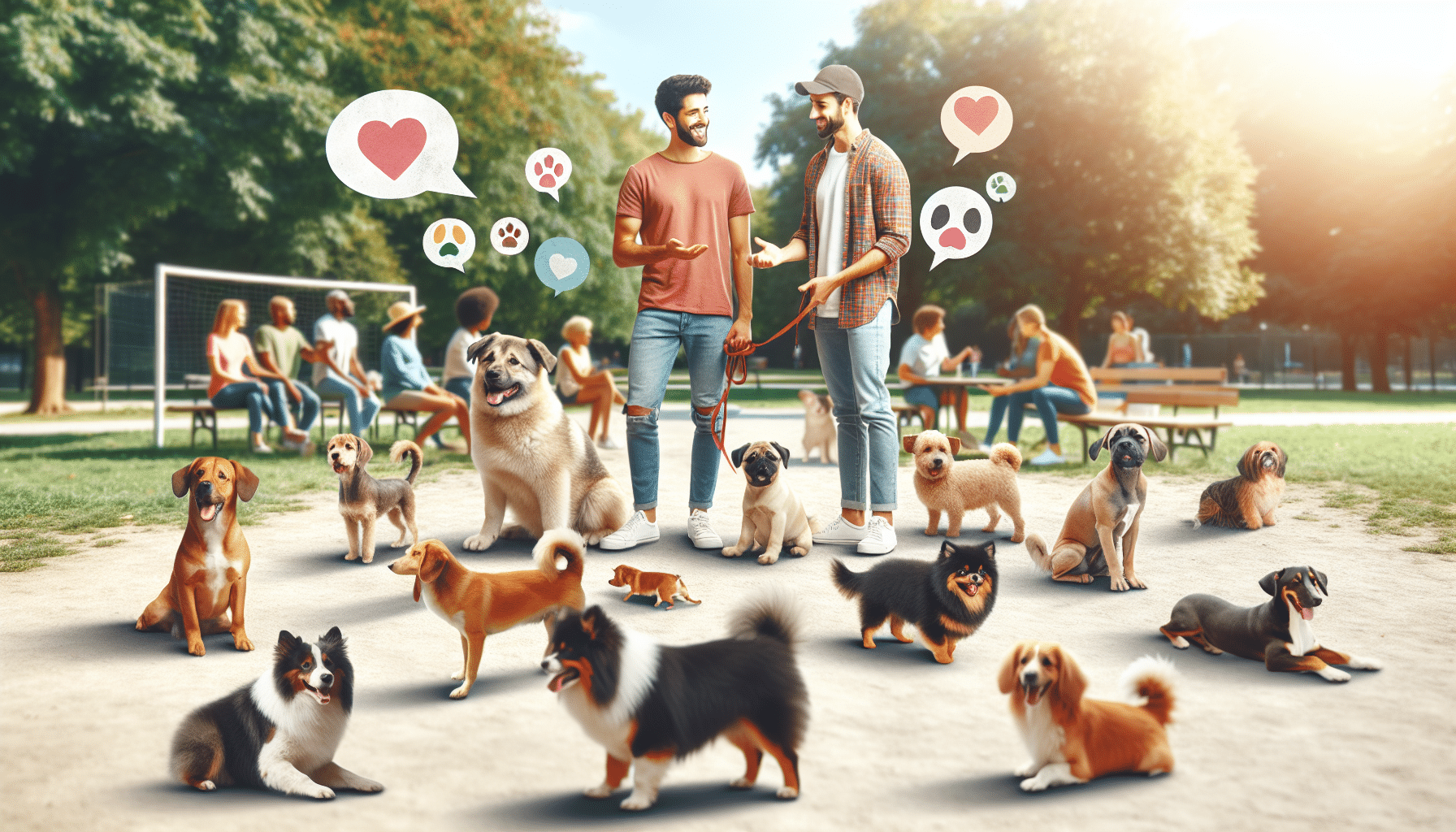
Socializing Adult Dogs
While it's ideal to start socializing your dog from a young age, adult dogs can also benefit from socialization activities. Here's how to socialize an adult dog:
Slowly introduce socialization activities
When socializing an adult dog, it's important to start slowly and gradually introduce them to new experiences and environments. Take your time and gauge your dog's reaction to different situations. Allow them to approach new individuals or other dogs at their own pace, ensuring they feel safe and comfortable.
Focus on positive experiences
When socializing an adult dog, the focus should be on positive experiences. Provide rewards and praise for calm and appropriate behavior during social interactions. Avoid putting your dog in overwhelming or stressful situations, as this can have a negative impact on their socialization progress. Concentrate on nurturing positive associations to help your dog build confidence and trust.
Use calming techniques
To help your dog stay calm during socialization activities, use calming techniques such as deep breathing exercises or providing a safe space. If your dog becomes anxious or stressed, take a step back and give them time to relax. Over time, as your dog becomes more comfortable with socialization, you can gradually increase the complexity of the activities.
Seek professional guidance if necessary
If you are unsure about how to socialize your adult dog or if they have existing behavioral issues, seek professional guidance. A qualified dog trainer or behaviorist can assess your dog's specific needs and provide tailored advice and techniques. They will help you develop a socialization plan that takes into account your dog's individual temperament, history, and any specific challenges they may face.
Maintaining Socialization Skills
Socialization is an ongoing process that should be continued throughout your dog's life. Here's how to maintain their socialization skills:
Continue regular socialization throughout their life
Even after your dog has been successfully socialized, it's important to continue regular socialization activities throughout their life. Regular exposure to new experiences, people, and animals will help reinforce their social skills and prevent regression.
Arrange playdates with other dogs
Arrange playdates with other dogs regularly to maintain your dog's socialization skills. This allows them to engage in appropriate play behaviors and practice their social skills in a controlled environment. Monitor the interactions and intervene if any concerning behaviors arise.
Expose to new experiences
Continue exposing your dog to new experiences as they grow older. Take them to new parks, trails, or pet-friendly events where they can encounter different sights, sounds, and smells. This exposure helps your dog remain adaptable and confident in various environments.
Stay consistent with training
Consistency is key in maintaining your dog's socialization skills. Continue practicing basic obedience commands and reinforcing positive behavior. Regular training sessions and positive reinforcement will keep your dog engaged and responsive in social situations.
In conclusion, socializing your dog is a vital aspect of their overall well-being and development. It helps prevent behavioral issues, improves their well-being, builds confidence, and promotes better communication skills. Whether it's socializing with other dogs, people, or exposing them to different environments, proper socialization ensures your dog can navigate the world with ease and enjoy healthy and positive interactions. Remember to start socializing them at an early age, consider their individual needs, seek professional guidance when necessary, and maintain regular socialization activities throughout their life. With the right approach, you can raise a well-socialized, happy, and confident dog.

